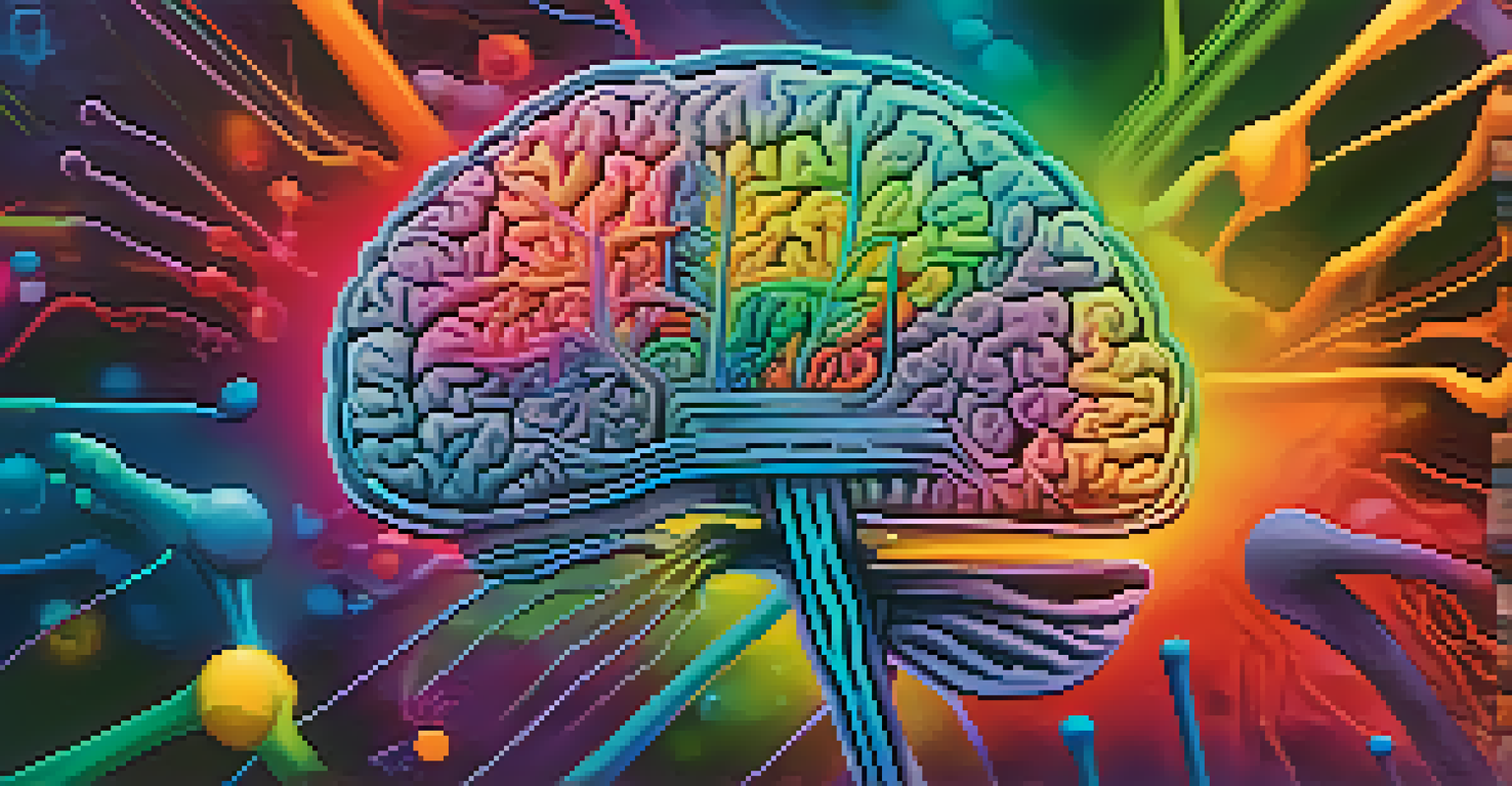The Science Behind THC and Its Effects on Sleep Quality

What is THC and How Does It Work in the Body?
Tetrahydrocannabinol, or THC, is the primary psychoactive compound found in cannabis. It interacts with the body’s endocannabinoid system, which plays a crucial role in regulating various physiological processes, including mood, appetite, and sleep. When THC is consumed, it binds to cannabinoid receptors in the brain, leading to feelings of euphoria and relaxation.
Sleep is the best meditation.
This interaction can significantly influence sleep patterns, making it a popular option for those seeking to improve their sleep quality. However, it’s essential to note that THC's effects can vary greatly from person to person, influenced by factors such as dosage, tolerance, and individual body chemistry. Understanding these nuances is key to grasping how THC may impact your sleep.
In summary, THC is more than just a recreational substance; it’s a complex compound that can alter sleep quality through its interactions with the endocannabinoid system. As we delve deeper into the science behind THC, we’ll uncover how it can both help and hinder your sleep.
The Role of Sleep and Why It's Important
Sleep is a fundamental human need, vital for maintaining our physical and mental health. During sleep, our bodies undergo numerous restorative processes, such as muscle repair, memory consolidation, and hormone regulation. Poor sleep can lead to a myriad of health issues, including anxiety, depression, and weakened immune function.

For many, achieving a restful night’s sleep can be challenging due to stress, anxiety, or other lifestyle factors. This is where substances like THC come into play, as some individuals turn to it for relief from sleep disturbances. Understanding the importance of sleep can help you appreciate the potential benefits and drawbacks of using THC as a sleep aid.
THC Affects Sleep Quality
THC interacts with the body’s endocannabinoid system, influencing various sleep stages and potentially altering sleep quality.
In essence, recognizing sleep as a crucial component of overall well-being sets the stage for exploring how THC might serve as a tool for improving sleep quality, albeit with some caveats.
How THC Influences Sleep Stages
Sleep is divided into various stages, including REM (rapid eye movement) and non-REM sleep, each playing a unique role in our restfulness. THC is known to affect these stages, often reducing the time spent in REM sleep while increasing deep sleep. This alteration can lead to a feeling of deep relaxation but may also affect dream activity and memory processing.
The greatest wealth is health.
Interestingly, while some users report feeling more rested after using THC, the reduction in REM sleep could have long-term consequences, such as impaired cognitive functions or emotional regulation. It’s vital to understand that while THC may help you fall asleep faster, it might not necessarily provide the restorative sleep your body needs.
Thus, while THC can influence how easily you drift off, it’s essential to consider the quality of sleep you’re getting. Balancing the potential benefits with the effects on sleep stages is crucial for achieving optimal rest.
The Benefits of THC for Sleep Quality
Many people turn to THC to assist with sleep-related issues, and for good reason. THC can help reduce anxiety and stress, making it easier for individuals to unwind and fall asleep. Additionally, its relaxing effects can mitigate pain or discomfort, allowing for a more comfortable sleep experience.
Research indicates that THC may also help individuals with insomnia or other sleep disorders achieve more consistent sleep patterns. Users often report falling asleep quicker and experiencing fewer nighttime awakenings, which can contribute to a more restorative sleep cycle.
Benefits and Downsides of THC
While THC can help reduce anxiety and improve sleep patterns, it may also lead to reduced REM sleep and dependency issues.
In summary, the benefits of THC for sleep quality are evident for many users, particularly in reducing anxiety and promoting relaxation. However, it’s essential to consider personal responses and consult with healthcare professionals when exploring THC as a sleep aid.
Potential Downsides of THC on Sleep
While THC can offer benefits for sleep, there are potential downsides to consider. As mentioned earlier, THC can reduce REM sleep, which is crucial for cognitive function and emotional stability. Prolonged use may lead to dependency or tolerance, requiring higher doses for the same effects.
Some users also report experiencing disrupted sleep patterns after the initial sedative effects wear off, leading to difficulty staying asleep throughout the night. This rebound effect can leave individuals feeling groggy or unrested, countering the intended benefits of using THC for sleep.
Ultimately, while THC can provide immediate relief for some, it’s essential to weigh the potential downsides against the benefits. A balanced approach can help individuals make informed decisions regarding their sleep management strategies.
Personalizing THC for Individual Sleep Needs
Understanding that everyone’s body reacts differently to THC is crucial when considering it for sleep. Factors such as genetics, metabolism, and individual health conditions can influence how THC affects your sleep quality. This means that what works for one person may not work for another, making personalized approaches necessary.
Many users find success by experimenting with different strains, dosages, and consumption methods to find what best suits their needs. For instance, some may benefit from high-THC strains, while others might prefer a balanced THC/CBD ratio to minimize psychoactive effects while still promoting relaxation.
Personalize Your THC Experience
Individual responses to THC vary greatly, making it essential to personalize approaches to find the most effective dosage and strain for sleep.
In conclusion, personalizing your THC experience can be key to finding the right balance for improved sleep quality. Listening to your body and adjusting accordingly can help you harness the benefits of THC while mitigating potential drawbacks.
Consulting Professionals for Sleep Solutions
As with any health-related issue, consulting with professionals is crucial when considering THC for sleep. Healthcare providers can offer personalized advice based on your unique circumstances, including existing health conditions or medications you may be taking. They can also guide you on responsible usage and dosage to minimize risks.
Additionally, professionals can help you explore alternative sleep aids and behavioral strategies that may complement or replace THC use. For example, cognitive behavioral therapy for insomnia (CBT-I) has shown promising results for many, addressing the root causes of sleep disturbances without the need for substances.

In summary, while THC may be a helpful tool for some, working with healthcare professionals can provide you with a comprehensive approach to improving your sleep quality. Their guidance can ensure you make choices that support your overall health and well-being.